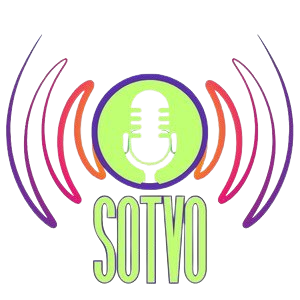How Are Your Speaking Habits?
Have you ever listened to your own voice recordings?
Are you noticing any speech patterns that you tend to fall back on when you are in a long session of recording scripts?
As a performer, a voice actor, your speech patterns are noticed and quickly become apart of recording session concerns with your clip goes into final editing. Here are a few tips to increase your awareness and to improve your clip acceptance.
Pronunciation: is defined as the act or result of producing the sounds of speech, including articulation, stress, and intonation. Pronunciation is related to the word itself, focusing on which syllables should be emphasized and how certain letters (or combinations of letters) should sound when spoken.
Developing poor or lazy speaking habits will hurt your communication skills and your recording sessions.
Practice opening your mouth to shape the words even if you need to over exaggerate at first.
Learn how to sound out your words then to form your words with your mouth shapes
Listen to how you talk or read out loud to see if there is a pattern with certain words.
Practice until it becomes natural.
Hire a speech therapist or a vocal coach to correct bad habits, if needed.
Poor Pronunciation will cause mumbled words, mis-understood words this will end in poor recording session.
Remember finding the reason for your mouth clicks will help you to understand the causes of mouth sounds and mouth clicks on the recording. Audio editors find this one cause taking up most of their time, and creates more effort and a more intense audio editing session for them.
In turn, poor acting, poor reading skills, and creating a bad first impression will be the result. It is worth your efforts to correct any badly formed words.
Enunciation: Proper enunciation is essential for the listener of your voice production to have any idea of what the voice actor is saying or singing. Enunciation refers to how clearly and distinctly a particular individual forms the sounds that make up a word.
A perfect example would be in the film version of "My Fair Lady" where Professor Higgins and Eliza Doolittle worked on correcting her speech patterns with the tongue twister:
“The rain in Spain stays mainly on the plain?”
Without proper enunciation, that sentence can be a garbled mess and totally misunderstood by the listener! But by enunciating your words, your listener will easily understand even the most difficult, tongue-twisty lines.
How to Stop the Mouth Clicking and Mouth Sounds that come from Your Speaking Habits
Pronunciation: Break down words, form your sounds, open your mouth – Practice, Practice, Practice until it becomes natural; this will help you with your voice character development, dialect accents in different languages…
Enunciation: starts with proper body alignment: How do you stand? Where do you place your head? Breathing from diaphragm? How are your words sounding? Muffled, mumbling, lazy pronunciation… Practicing…
Slow Down: find your rhythm to develop your word rhythm and sound for clear understanding and comprehension of your listener. Fast talking leads to miscommunication, unless you have great Pronunciation and Enunciation of each word you speak. There are exceptions, of course, instructions from your script; if needed to fit in a timeline; you still will need to create clear content; sometimes vocal warm-ups and tongue twisters will help with clear, fast speaking.
Practice Opening Your Mouth to form your words, even if it feels like you are over-exaggerating – Practice, Practice, Practice until it becomes natural
Learn Breath Deep Exercises build up your endurance
Learn to Breathe Without Noise / Supporting Your Diaphragm
Reading Out Loud: confidence building, rhythm, cadence, breathing, a great practice vocal warm-up exercise
Tongue Twisters: vocal warm-ups with pronunciation and enunciation can create a strong recording. A great book by Rodney Saulsberry: was fun, educational and challenging to study and practice. (CLICK HERE)
Do Not Over Project: Speaking too loud into a microphone will create a poor recording session; learn to equalize – normalize your voice to the level your microphone likes. Some microphones are so sensitive speaking loud causes disturbances and a poor recording sessions
Exception would be anime, sounds effects, or gaming; and any script direction – this is where your GAIN and Equipment Knowledge come into play.
Hire A Speech Therapist or Vocal Coach/Mentor
Movement of Lips and Tongue:
The following tested theory that comes from the Voice Coach; Bill DeWees
“Your 1st line of defense is the MINIMIZE your mouth noise by eliminating the movement of your lips and tongue.”
Keeping your lips resting apart instead of together is a strange habit yes, but an interesting theory if you take a closer look at it. Very awkward at first but becomes better with practicing and ends up with a ton better result in your recording sessions.
Resting your lips together (touching) as you read, in between characters, switching chapters, taking a breath will inevitably have to be pulled apart and this will create some kind of noise that will be picked up by your microphone. Getting in the habit and practicing not resting your with your lips together becomes something to become aware of then actively practicing keep your lips slightly apart when you record. Try it – Do you see a difference??
Keeping your lips hydrated and moistened; lip balm, hydration, not getting in the habit of frequently licking your lips; this will dry your lips out even more.
Another awareness step that will be an interesting theory to take a look at is allowing your tongue to move around in between resting periods and to rest against the top of your mouth in-between sentences, between chapters, even taking a break between takes, remember just like the lips if your tongue connects to your lips or the top of your mouth and it moves to pull apart it will make a noise; in turn again this will be picked up by your microphone. Practice on keeping your tongue still and not resting at the top of your mouth might make a big difference in your final recording session.
Joe Zieja’s Voice Acting Academy: https://www.jzvaa.com/
This incredible course takes you through different step-by-step techniques to help voice actors understand components for becoming and building a career and establishing your presence and brand in your chosen professional field in all the different areas and genres of voice-over; position, distance from microphone, filters, types of microphones for different results, Audio Editing D.A.W. tweaks, all these are covered and much, much more…I personally loved and learned a ton from this course and was excited to have so many questions and classes covered and taught.
Microphone Techniques to Help Stop Mouth Clicks:
Good Support For Your Diaphragm: Learn and actively build your breath skill set and how your diaphragm muscle is used. Understanding the purpose and the exercises to develop this muscle will help you to perfect your endurance during a recording session.
Standing Straight/Good Posture: Opens up your chest cavity and gives your full expanse of your lung capacity.
Distance From the Microphone: a golden rule is about a “fist” length or a “hang loose” hand distance away from the microphone. For my hand size the measurement of my “fist” width is 3 ½” and the measurement of my “hang loose” hand is about 7.” This will give you a base starting point to adjust from.
Angle of Microphone: Is generally not directed directly at you face, it is angled downward, depending on your microphone, your room space, a pop filter will help a lot.
Your Breathing Pattern: Become aware of your breathes; when it happens, what pattern you tend to have, what specific words cause more breath than others, what characters create deeper breathes than others, what language dialects cause more deeper breathes, how noisy are you when you breathe, all these patterns will create noise that the microphone will pick up.
Awareness and control will help you to understand what areas you need to work on and the steps needed to develop your endurance level.
Deep breathing exercises, vocal warm-ups, tongue twisters, breath control, vocal straws, breath building gadgets, playing a wind instrument, swimming, singing, vocal projection exercises will help you to build your skill set, expand your lung capacity, strengthen your diaphragm and your performance will soar.
Voice Professionals have used the following to develop their skill level and endurance:
Vocal Straws and Sing Ring Vocal Training: Innovative vocal training & therapy tool: Relieve vocal strain, overcome breaks, and build a stronger voice with the Sing Ring – unique speech therapy & voice training tool. Use it to perform vocal exercises recommended by vocal coaches just a few minutes a day, and see amazing vocal improvements.
The Breather: Strengthens respiratory fitness independent inhaling and exhaling dial control: The Breather muscle trainer operates with independent settings for inhalation and exhalation. The ultimate lung trainer, supporting respiratory health by promoting belly breathing.
On one more note, take singing lessons, or improv acting classes in projection. Many have found a great improvement from the daily practice of these exercises.
I extended all my best wishes to your improvement, study, research and efforts to improve your amazing career choice!
You Got This!
Seize The Day!
SOTVO Team
October 2024
DISCLAIMER:
All content, medical definitions, symptom related language, or medical descriptions included in this article is the author's opinion only and should not be considered to be complete or scientifically accurate, or used as a medical diagnosis and/or advice.
This information is not intended to be used in place of a visit, consultation, or advice given by a medical, specialist or any other medical and health professional. It is only used to start a conversation to gain open communication with your chosen health professional.
Any comments that resemble any person, health condition, or situation is purely coincidental.
I recommend that you do your own independent research on the drug/herb interactions that can be dangerous and affect your treatment plan. I encourage you to discuss your plan of action, list of all health supplements (in any form), dietary changes, and options you decide to pursue with a qualified licensed professional BEFORE purchasing or taking any natural herbal supplement, vitamin, or make any dietary changes you may consider. My suggestion is to make sure the healthcare professional is educated on the use of natural remedies and their uses: Functional Integrative Specialist and Doctors are a good choice for this purpose.
Any product suggestions or affiliate links with the Amazon Associates Affiliate Program given within this article are the products the author personally used and would suggest as an option for you to research further to include in your possible treatment plan. We use affiliate links to promote the products that have shown positive comments and some personal use and recommendations to create suggestions to help give you choices and create awareness.
The author is not to be held responsible for the choices, opinions, of any third party outside links, blogs, articles, product suggestions that are given by the third party outside links who are responsible for their own content.




